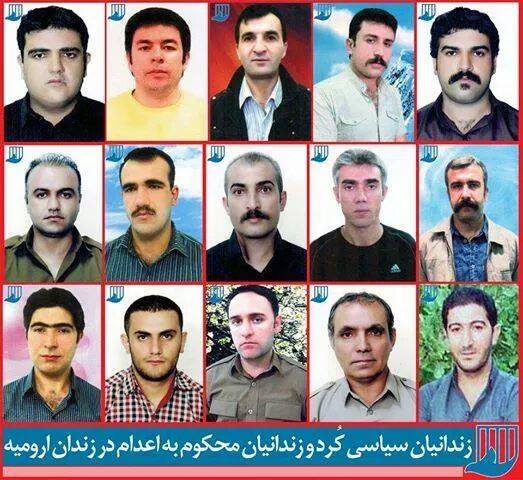
Kurdish political prisoners on hunger strike in Iran (Photo Credit: Salah Bayaziddi)
Sectarian tensions between Kurds and Persians in the Islamic Republic of Iran continue to be ignited.
Iranian Kurdish leader Salah Bayaziddi, the Washington, D.C. representative of the Komala Party of Iranian Kurdistan, a liberal Iranian dissident pro-democracy group, told the Foreign Policy Association in an exclusive interview that as we speak, 27 Kurdish political prisoners are on hunger strike in Iran. Today is the 23rd day of their hunger strike in Urmia Central Prison.
“The hunger strike by the 27 Kurdish political prisoners was launched in protest against the Iranian regime’s decision to transfer criminal prisoners to the political prisoners’ ward in Urmia prison,” Bayaziddi stated. “Information obtained from the prison reveals that the Iranian intelligence serve has many times threatened the prisoners on strike with execution or the transfer to other prisons south of the country since the protests began.”
“Osman Mostafapour, who is taking part in the protest, has reportedly been interrogated by an intelligence officer this week,” Bayaziddi noted. “It is reported that in response to the threats uttered in order for the ending of the hunger strike, the political prisoners remain determined to continue their protest until their demand is met and non-political prisoners are removed from their ward. In the meantime, the health of the political prisoners is reported to be deteriorating as the hunger strike continues. Ali Reza Rasuli is reported to be refused treatment despite having been referred to hospital several times.”
The names of the 27 Kurdish political prisoners include Ali, Wali and Jafar Afshari (brothers), Sherko Hassan Pur, Mohammad Abdullah, Xızır Rasuli Rad, Saman Nasim, Amir Maladoost, Sirwan Najawi, Jafar Mizayi, Ibrahim Resapur, Abdullah Efxeri, Abdurhaman Sıleman, Ebudllah Omeri, Seyd Sami Hıseni, Ebdulla Hemudi, Ehmed Temuyi, Osman Mıstefa Pur, Behroz Alxani, Mıstefa Rehman, Yusıf Kakememi, Seyd Cemal Mıhemedi, Eli Reza Resuli, Şoreş, Hebib Efşari and Mıstefa Dawudi.
According to Bayazzidi, the Kurdish political prisoners represent a variety of Kurdish pro-democracy groups: “They are all civilians. Many of them are intellectuals and students. Some of them are on death row.” Despite this fact, these Kurdish political prisoners on hunger strike have not received the media attention that they deserve. To date, as the world has paid much attention to the sectarian tensions between Kurds and Arabs in Iraq and Syria, not many speak about the ethnic conflicts within the Islamic Republic of Iran, including that between Kurds and Persians.
However, it is important to note that sectarian tensions between Persians and Kurds are also a significant political issue. In Iran, the Kurdish language is banned. Kurds are forbidden from having their own newspapers and magazines. Numerous Kurds who are active in cultural groups and NGOs have been arrested and given harsh prison sentences, while 29 Kurds are presently on death row. Since the establishment of the Islamic Republic of Iran, the Komala Party of Iranian Kurdistan has been fighting against the regime. They seek a democratic, pluralistic and federal Iran, which will respect their human rights and cultural identity.